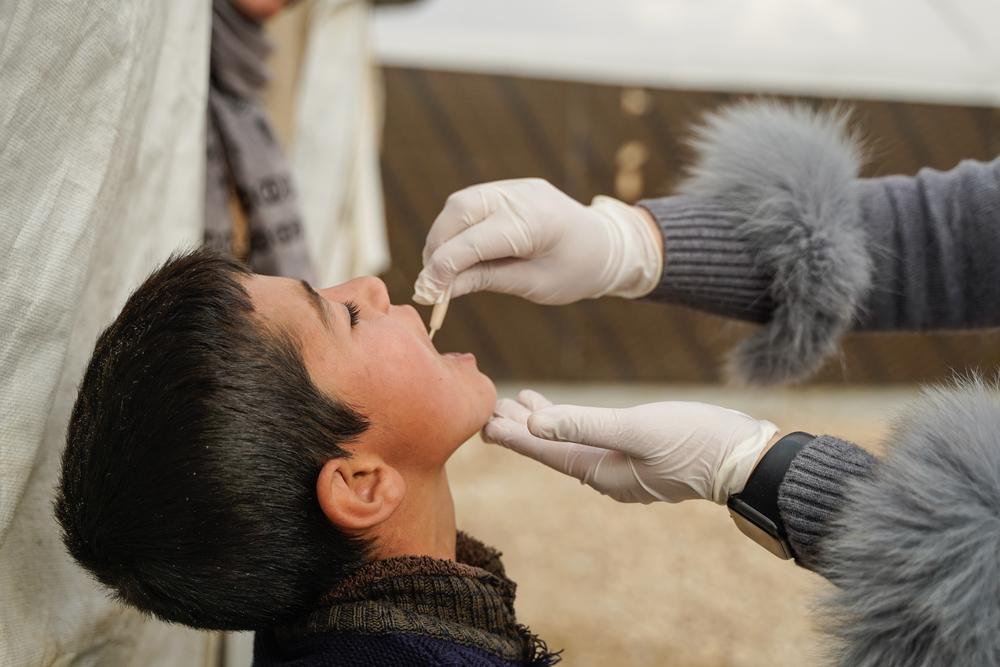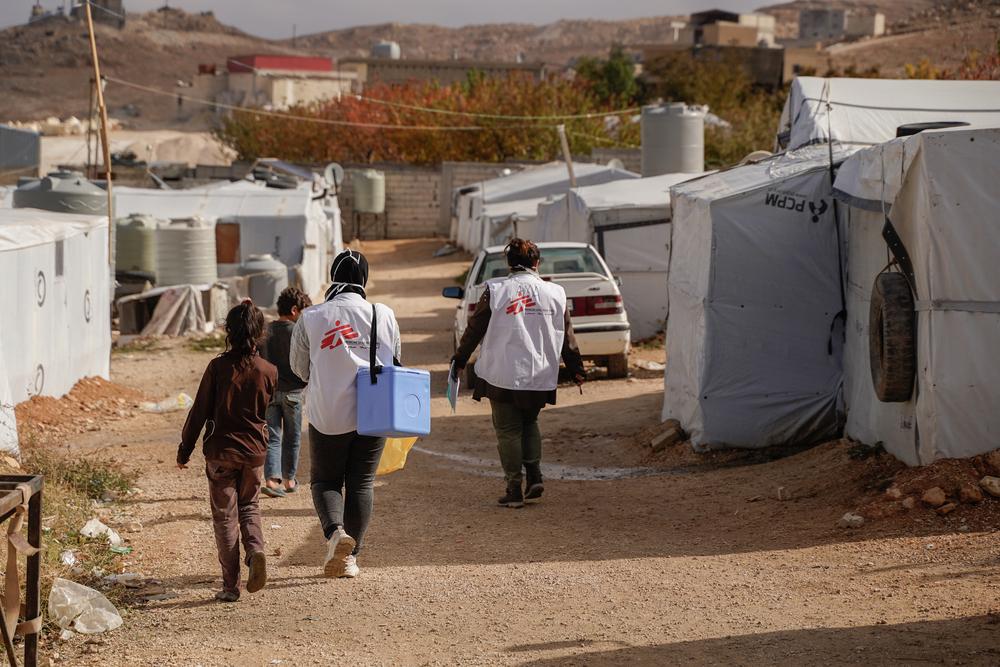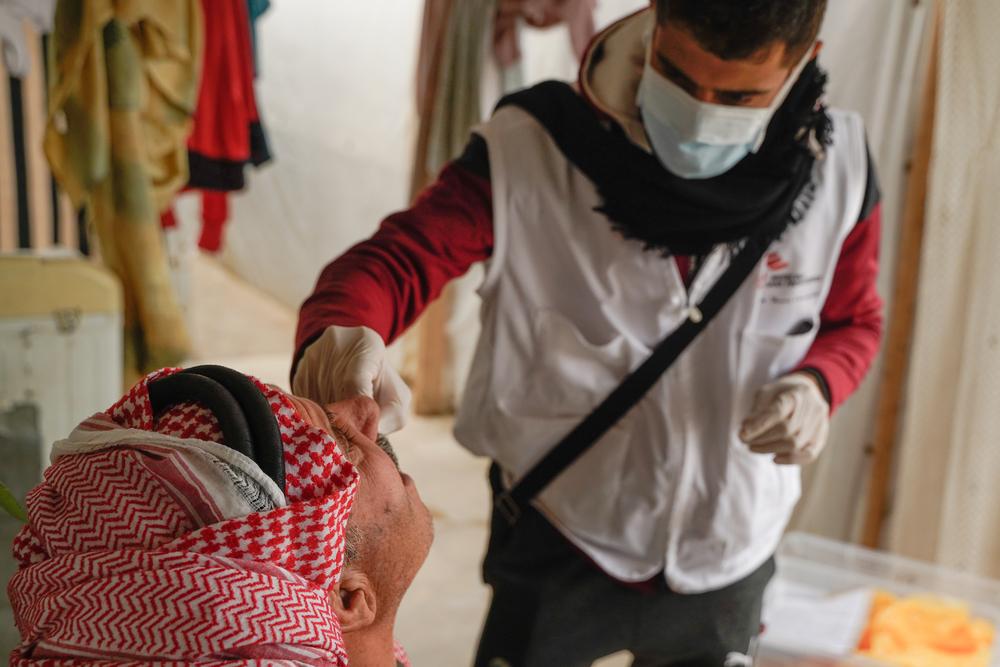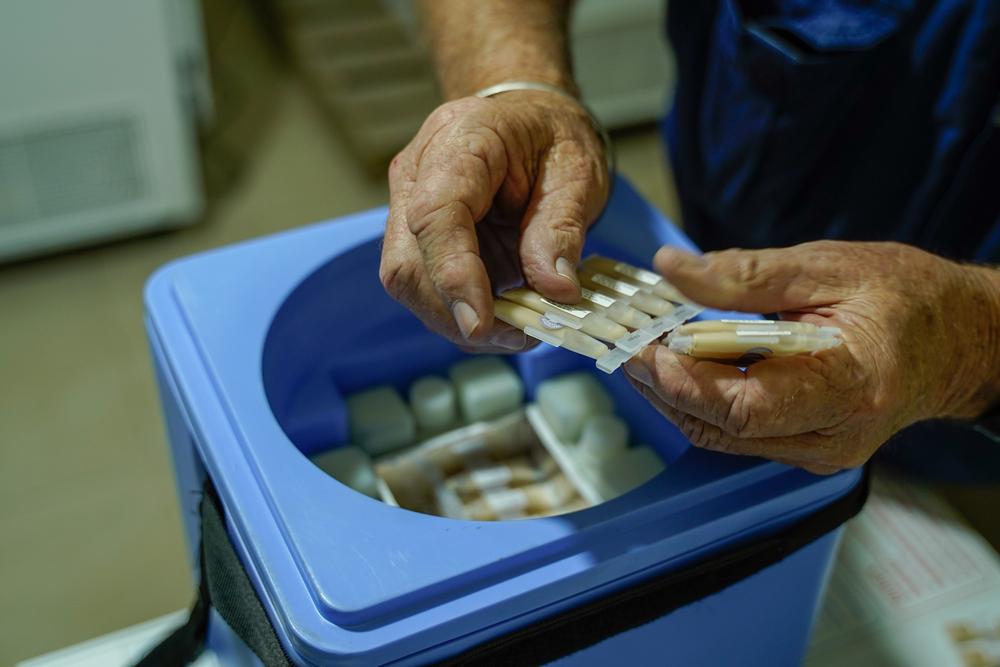Lebanon: Lack of safe water and sanitation threatens the ability to contain the spread of cholera

Doctors Without Borders teams vaccinating against cholera in Lebanon. Lebanon, November 2022. © MSF/Mohamad Cheblak
The first cholera outbreak in nearly three decades in Lebanon, is unfolding on top of the ongoing economic and fuel crisis that has further exacerbated the already limited access to safe drinking water and proper waste management networks in the country, threatening a full-blown spread of the disease. The already old and weak waste management networks are not regularly maintained and are leaking into the streets and households. Electricity shortages have forced power-dependent water pumps to stop working for an extended period causing water taps in homes to run empty.
As a result, people are relying on unregulated water trucking to get their water supply. Restricted by the financial crisis, other people, mainly in overcrowded and poor settings who are unable to afford private water supply, are sourcing water from polluted rivers, and ponds to cover their needs. In parallel, shortages of medical supplies and diagnostics are hampering people’s ability to access hospital care.
Since the beginning of the outbreak, Doctors Without Borders / Médecins Sans Frontières (MSF) has been increasing its efforts in the country to support in the curb of the outbreak and treating patients.
“Doctors Without Borders' experience working in more than seventy countries facing medical emergency crises, such as cholera, for the past fifty years allows us to act fast and put in place a comprehensive strategy to extend our support to the national health authorities, and people in Lebanon, in their fight against cholera”, says Dr Caline Rehayem, Doctors Without Borders Medical Coordinator in Lebanon. “We know for a fact that cholera isn’t complicated to manage, as long as the right tools are put in place: from prevention, to treatment”, she adds.
Since declaring it an outbreak on October 6, 19 people have died as a result of the disease, with the number of confirmed and suspected rising to 3,671 as of 16th of November 2022.

Doctors Without Borders teams walking in a neigbourhood to carry on cholera vaccination campaign in Lebanon. Lebanon, November 2022. © MSF/Mohamad Cheblak
Responding to the Outbreak: Patient Care & Vaccination
In the Bekaa Valley, Doctors Without Borders adapted a unit in its hospital in Bar Elias to be able to receive and treat cholera patients with a capacity of 20 beds, that can increase as needs arise. Since its opening on 31 October, we have received thirty three patients in our cholera treatment unit. The required adaptions made to the unitensures that the other services in the hospital, mainly for essential surgeries and wound care, can continue to run. Doctors Without Borders is also opening a field hospital with a capacity of twenty beds soon in Arsal, an area in the northern east of Lebanon where the nearest public hospital is at least forty kilometres away.
To limit the spread of the disease, Doctors Without Borders is vaccinating against cholera in Arsal, Tripoli, Akkar, and Baalback- Hermel in the north and north east of Lebanon as part of the three-weeks national vaccination campaign launched by the health authorities in the country. Doctors Without Borders is focusing on these areas that are poor and overcrowded where diseases such as cholera can spread more rapidly, putting people living there at heightened risk. In one week, our teams have managed to vaccinate 14,224 people and are targeting 150,000 people in total.
The vaccination activities are taking place as part of a coordinated effort between the Ministry of Public Health, international and local organizations to administer 600,000 cholera vaccines received by Lebanon, as first phase procurement, to combat the recently declared cholera outbreak in the country.

A man is receiving cholera vaccine by Doctors Without Borders team in Lebanon. Lebanon, November 2022. © MSF/Mohamad Cheblak
Spreading awareness in the community & training healthcare workers
Since the last recorded case of cholera in Lebanon was in 1993, raising awareness about how the disease is spread and how to treat it, is a vital step to contain the disease. Doctors Without Borders teams are going from door-to-door in the Bekaa Valley, north, and northeast of the Lebanon walking across neighbourhoods, visiting homes, shops, and camps actively seeking out people to raise awareness on the disease and the prevention measures to be taken.
“We provided training to healthcare workers and community health workers among various actors in an effort to support the healthcare system and communities to cope with the outbreak”, says Dr Caline Rehayem.
So far, we provided more than 17 trainings to a combination of 148 medical and paramedical personnel.

Doctors Without Borders teams preparing the vaccines for the vaccination campaign against cholera in Lebanon. Lebanon, November 2022. © MSF/Mohamad Cheblak
Prevention Measures, and Patient Care are essential, however not enough
Enhancing cholera prevention measures, cholera vaccination and patient care are all critical elements when responding to a cholera outbreak. However, cases of cholera and other waterborne infectious diseases are expected to regularly resurface and spread further if no meaningful actions are taken to ensure people’s access to safe drinking water and sanitation services in the country.
It is a scientific fact. Cholera is caused by ingesting bacteria of faecal origin – Vibrio cholerae – found in dirty or stagnant water, and for it to be properly contained, the root of the problem must be solved. Otherwise, the current dire water infrastructure in Lebanon will continue to expose the population to highly contaminating diseases such as cholera.Marcelo Fernandez, Head of Mission